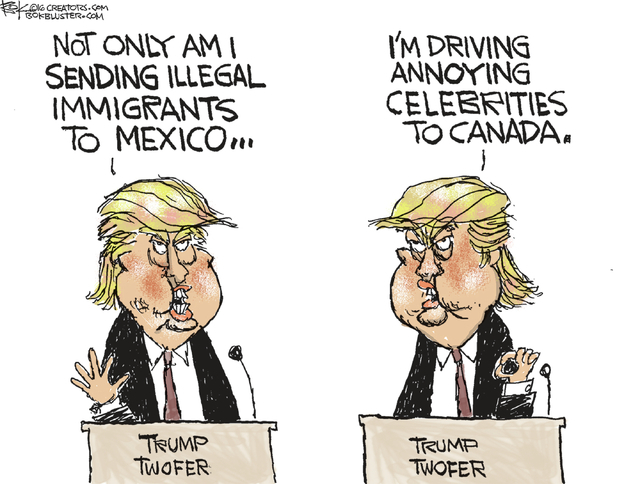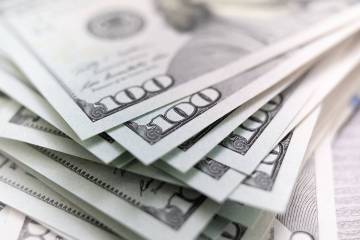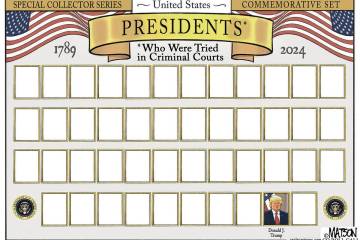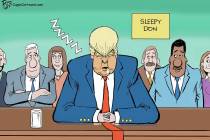Trump revives ‘manly firmness’ of American Revolution
Is Donald Trump the Samuel Adams of our day?
That’s a question that I, as the author of a biography of that leading figure in the American Revolution, sometimes get asked, especially as July 4 approaches.
Trump himself has taken to invoking Samuel Adams’ fellow revolutionaries on the campaign trail: In a recent speech about trade, he quoted George Washington and Alexander Hamilton, saying America’s Founding Fathers “wanted America to be strong, independent and free.”
Trump’s many critics argue that he has more in common with European fascists than with American freedom fighters. And indeed, at first glance, even stipulating that it’s difficult to translate the politics of 1776 to the politics of 2016, there are some apparent contradictions.
The text of the Declaration of Independence faults King George III for “cutting off our trade with all parts of the world” and for having “endeavoured to prevent the population of these States; for that purpose obstructing the Laws for Naturalization of Foreigners; refusing to pass others to encourage their migrations hither.” If Mr. Trump is going to run as a candidate who wants to restrict international trade and reduce immigration, he’ll have more in common with King George III than with the signers of the Declaration.
But the more one digs into it, one can see certain unmistakable parallels between the Trump campaign and that of Samuel Adams and his fellow American Revolutionaries. The first relates to that “strong” point that Trump makes and that is encapsulated in his “Make America Great Again” slogan.
The Declaration’s list of grievances against George III includes his having dissolved the colonial legislatures “for opposing with manly firmness his invasions on the rights of the people.”
A good part of the attraction of the Trump campaign can be conveyed in that phrase from July 1776, “manly firmness.” Trump supporters, like the American founders, refuse to be emasculated by remote elites. They don’t want their guns, their jobs, their free speech rights, their tax money, or their lives taken away by bureaucrats, Washington politicians, overseas competitors, or foreign terrorists.
Nowadays, language such as “manly firmness” is interpreted as insulting to women. Call it whatever you want — “womanly firmness”? — but, given the threat of Islamist terrorism, if Hillary Clinton is to beat Trump, she’ll need to show her own version of the steely resolve displayed by the colonists who faced down the British Empire.
Trump and his followers seem in tune with the spirit of the American Revolution in some other ways, too.
Critics accuse Trump of tolerating or tacitly encouraging violence at his rallies. The same accusation was made against the American Revolutionaries, whose worst mob excesses — tarring and feathering, sacking the mansion of a loyalist lieutenant governor — make the toughest tweets from Trump or his followers look tame by comparison.
The American Revolution was to some large extent a tax rebellion; Trump’s plan to simplify and reduce taxes fits with an anti-tax current in American history that dates back to Samuel Adams and the Boston Tea Party.
And the American Revolution was also a revolution against arbitrary rules imposed by distant elites. Trump’s trade speech called on Americans to “imagine how much better our future can be if we declare independence from the elites who’ve led us to one financial and foreign policy disaster after another.”
If Trump manages successfully to portray the Clintons, their donors, foreign trade commissioners, and their pals in the anti-Trump press as a bunch of oppressive modern-day monarchs, he just may find himself leading his own version of the American Revolution.
The language may seem archaic 240 years later, but “manly firmness” has its enduring appeal. So do, thankfully, life, liberty, the pursuit of happiness, and the other principles that birthed American independence.
Ira Stoll is editor of FutureOfCapitalism.com and author of “Samuel Adams: A Life.” His column appears Sunday.




























